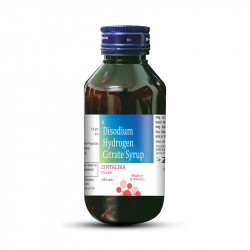Best Foods for Urine Infection – Soothe UTI Naturally


Urinary tract infections (UTIs), or urine infections, are common, especially in women, and can cause discomfort, frequent urination, and pain. While medication is essential for treatment, a proper diet can support faster recovery and help prevent future infections. This blog covers the causes, foods to eat and avoid, and simple practices to maintain a healthy urinary system.
What Causes a Urine Infection?
UTIs are caused when bacteria enter the urinary tract through the urethra and start multiplying in the bladder. Some common causes include:
- Poor intimate hygiene
- Not drinking enough water
- Holding urine for long durations
- Unprotected sexual activity
- Use of diaphragms or spermicides
- Wearing tight or synthetic underwear
- Certain health issues (e.g., diabetes, kidney stones, or a weak immune system)
Common Symptoms of a UTI
Recognizing symptoms early helps in getting timely treatment. Watch for:
- Burning sensation while urinating
- Frequent urination urges without actually passing much urine
- Cloudy or foul-smelling urine
- Pain or pressure in the lower abdomen
- Mild fever or fatigue
- Blood in urine (in some cases)
How Diet Affects Urine Infections
A balanced diet helps your body flush out bacteria and supports faster healing. Certain foods have natural antibacterial and anti-inflammatory properties, while others can worsen irritation. Here’s a clear guide on the foods you should include and those you should skip.
Which Foods Are Good for Urine Infection Relief?
- Water-Rich Foods: Staying hydrated flushes bacteria from the urinary tract.
- Cucumber
- Watermelon
- Muskmelon
- Celery
- Bottle gourd (lauki)
- Coconut water
- Probiotic-Rich Foods: Probiotics promote healthy gut and vaginal flora, preventing harmful bacterial growth.
- Curd (dahi)
- Buttermilk
- Fermented foods (idli or dosa)
- Vitamin C-Rich Foods: Vitamin C acidifies urine, which can inhibit bacterial growth.
- Amla (Indian gooseberry)
- Oranges
- Guava
- Lemon water
- Sweet lime
- Cranberry Juice: Cranberry juice has natural compounds that help stop bacteria from attaching to the urinary tract lining. Unsweetened cranberry juice is more effective. Avoid sugary versions.
- Garlic and turmeric: They are known for their natural antibacterial and anti-inflammatory effects. You can add them to daily cooking or consume turmeric milk at night.
Also read - Best Syrup For Urine Infection
What Foods Should Be Avoided in Urinary Tract Infection?
- Spicy and Oily Foods: Fried snacks, pickles, spicy curries. Such items can trigger irritation in the bladder and lead to increased symptoms.
- Caffeine and Carbonated Drinks: Coffee, tea, colas, and energy drinks should be avoided because caffeine can create complications in the bladder.
- Alcohol: It can lead to dehydration and weaken your immune response.
- Artificial Sugars: Packaged juices, sweets, and soft drinks. It can alter bladder pH and contribute to bacterial growth.
Healthy Habits to Prevent Urine Infections
- Drink 8–10 glasses of water daily
- Urinate frequently and never hold urine for long
- Practice proper intimate hygiene
- Wipe front to back after using the toilet
- Urinate before and after sexual activity
- Wear cotton, breathable underwear
- Avoid tight-fitting clothes for long durations
- Limit sugar intake, especially during infections
Home Remedies That May Help
These are age-old Indian remedies that may provide comfort (but are not replacements for medical treatment):
- Barley water – Works as a natural diuretic, aiding in the removal of toxins from the body.
- Jeera water (cumin seed water) – Soothes inflammation.
- Coriander seed water – May help with burning sensation.
- Ajwain (carom seed) water – Known for antibacterial effects.
When to See a Doctor?
If symptoms last more than 48 hours, worsen, or include fever, chills, nausea, or pain in the back, seek medical attention immediately. Repeated UTIs might require further evaluation and long-term management.
Also read - Medicine for UTI Females
Conclusion
Urine infections can be painful and recurring if not managed properly. Along with prescribed treatment, focusing on a balanced, UTI-friendly diet and following hygiene practices can greatly reduce your risk. Drink plenty of fluids, eat fresh fruits and probiotics, and avoid irritants like spicy food and caffeine. With the right approach, you can support your body’s natural healing and prevent future infections.
Frequently Asked Questions (FAQs)
Q. What is the main cause of a urine infection?
A. UTIs frequently develop when E. coli bacteria move up the urethra and infect the urinary tract.
Q. Can drinking more water help cure a urinary infection?
A. Drinking plenty of water helps flush out bacteria from the urinary tract and can support faster healing.
Q. Is treatment always necessary for UTIs, or can they disappear without it?
A. Mild UTIs may sometimes clear on their own, but it’s always safer to consult a doctor, as untreated infections can spread to the kidneys.
Q. How can I prevent urine infections naturally?
A. Stay hydrated, maintain good hygiene, urinate after intercourse, avoid holding in urine, and wear breathable cotton underwear.
Q. Can children and men also get UTIs?
A. Yes, while less common, UTIs can affect men and children, especially if they have certain medical conditions or poor hygiene practices.
Q. Are urine infections more common in women?
A. Women are more susceptible to UTIs because their urethra is shorter, allowing bacteria quicker access to the bladder.
Disodium Hydrogen Citrate (1.4 gm/5ml)








 Added!
Added!